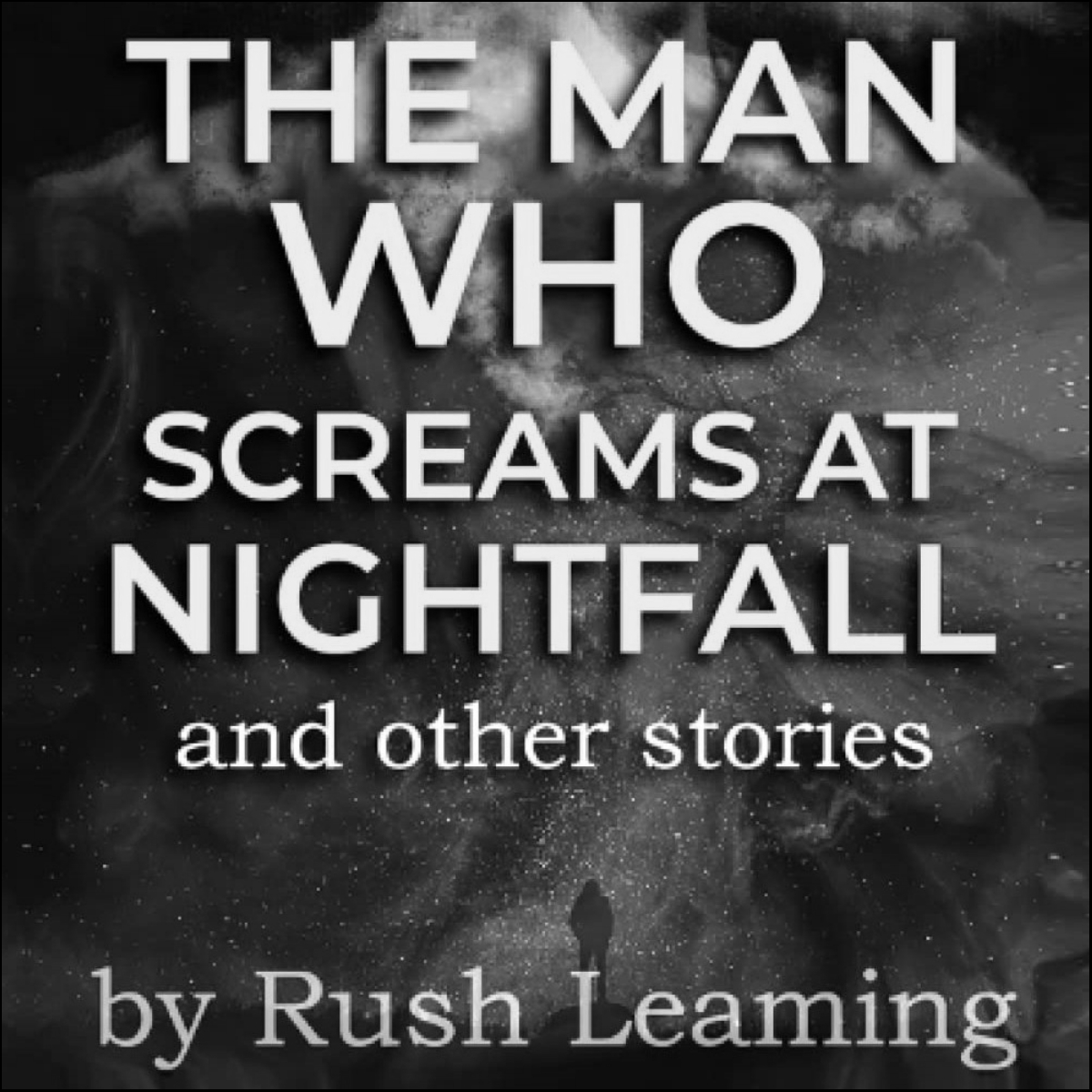
I received an electronic copy of this book through LibraryThing's Early Reviewers program in exchange for an honest review.I am a sucker for a freshly released short story collection from a small publisher. With not everyone being in on the short-stories-are-better-than-novels secret, the press is taking a risk believing in a book that, by its very nature, is not going to sell as well. And a self-published collection? Try and stop me. So, when The Man Who Screams at Nightfall and Other Stories popped up on LibraryThing’s Early Reviewers, and the author’s note read: Get the third-best short story collection ever created! I had a good feeling when I clicked request. And I got it!
While not the third-best collection I’ve read (sorry, Mr Leaming), it is an enjoyable departure from your typical collection and worth the read. You see, right away, Leaming broke the rules. Short stories are fiction, and these stories are 93% true. So, if you’re an uber short story nerd diving into this book, you won’t find the tightly written sort of stories that knock you back and require rereading to grasp what the author just did. Leaming isn’t pushing the edge of the form, or even really approaching it. In many cases, they aren’t even short stories, more like stories that are short or anecdotes with resolutions that fade rather than end. But that’s how things are in life, and this collection is about a life.
If I’m interpreting the back-cover blurb right, each piece features the same main character, an American named Michael, at various points in his life and in different countries and communities around the globe. But since he remains unnamed in most, and the character’s development in the stories alters him, each piece could be about different young men in various places in their journey. In either case, the character experiences the world from his limited perspective, makes mistakes and sacrifices, finds love and loses it.
By sharing a common theme and character, the stories in The Man Who Screams can be read one after another, though a few might require processing (CW for raw discussions of mental health and addiction). For the most part, though, each story makes you want to read the next, like the chapters in a novel. Where this collection lost marks for me has more to do with not meeting my expectations of short stories. I think Leaming leans too heavily on familiar short story tropes, making the stories less memorable. The ideas are great, and the characters are interesting, but I would have liked to see more intentional use of literary devices and stronger endings across the board. Here is my one-sentence summary and rating by story:
“The Man Who Screams at Nightfall” An American moves to a small village in Zaire to help set up a fish farm and finds Kachamba, a handyman, on the village’s streets battling his demons. I like this story, but I want it to be tighter. There are a few false endings that could use some better integration to give the actual ending the punch it deserves. (3 stars)
“Parade” Michael is in Zaire, sick with an infection, in the back of an SUV with a broken axle, 10 miles from the nearest village and further from a highway. The tension building in this story is excellent until just before the climax. Then, it’s a bit deus ex machina, which causes the supporting characters to lose their purpose. (3 stars)
“Alphabet City” Convinced he’s not “clean cut on the inside,” a young man goes in search of a guide to the heart of the old New York underbelly. I like how the main character shifts from unlikeable to tolerable, not only to the reader but to himself. (4 stars)
“Happy Hour at the Pub Madrid” Mr. Lovenuts has gotten himself in a pickle, and it is hard to tell whether the other barflies are on his side. This story is more of a humourous anecdote than a short story. The ending just doesn’t satisfy. (2.5 stars)
“Ella, La Loca” Everyone calls Elsa crazy, but one man sees her differently, not that that changes anything. A sweet story, though I would have liked to see his choice not to step in at the last party affect him a little more. (3 stars)
“Agora Dogs” An American with a warrant out for his arrest and nothing to show for his time on the planet settles into a summer job in Greece, meets a woman who makes him not hate himself, and kills a man. A fun read but a little loose. (3 stars)
“A Little Patch of Sunshine” A man’s stream of consciousness from inside a mental health institution. A brief post-modern glimpse into institutionalized mental health. I like the pop culture references. (3 stars)
“Robo-Cop Rides Again” After graduating from the program at the Slate Thompson Rehab facility, Robo-cop stays on to share his methods with the new recruits and ends up leaving as a legend among men. The graphic descriptions don’t feel meaningful enough to the story, so it feels gratuitous. (3.5 stars)
“Ashes” A man walks the streets from Manhattan to Brooklyn as the towers crumble on September 11, 2001. As a short story rehashing a terrible event, this piece could be a meaningful expression of futility, but as it is, it feels more like a dredging up of old memories without purpose, but maybe that was the purpose. (3 stars)
“Here” A single father grapples with his vices. A hopeful little flash piece that isn’t out of reach. (3.5 stars)
“A Way to Go Home” Michael is benched and stuck in the dugout with a bully from school. I like the build of tension in this one, but the ending didn’t quite pull the story together for me. (3 stars)
Overall, I give this collection 3.5/5 stars because while each story pulled at my heart, they didn’t completely satisfy my short story needs.
For the curious, I too wanted to know what Mr Leaming believed the best- and second-best collections were, so I wrote and asked: Dubliners by James Joyce, The Canterbury Tales by Geoffrey Chaucer, and Night Shift by Stephen King. So that’s three, but I have a feeling that’s just the kind of guy Rush is.




